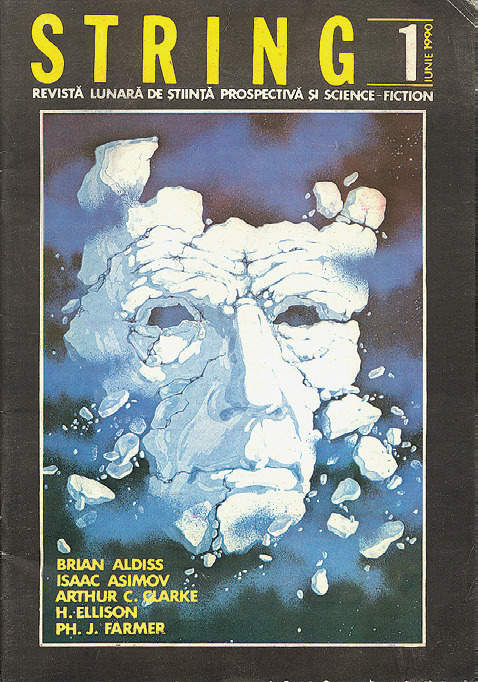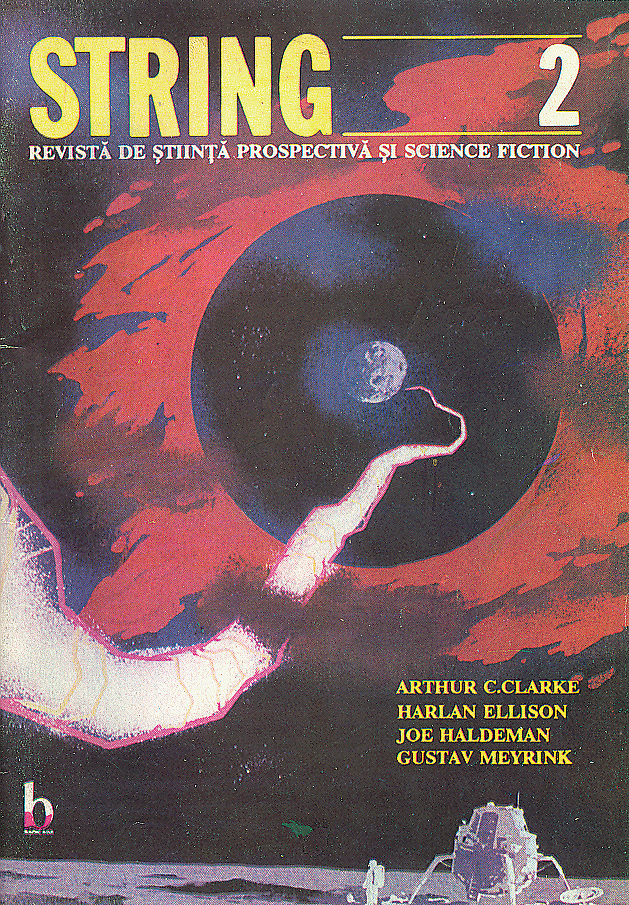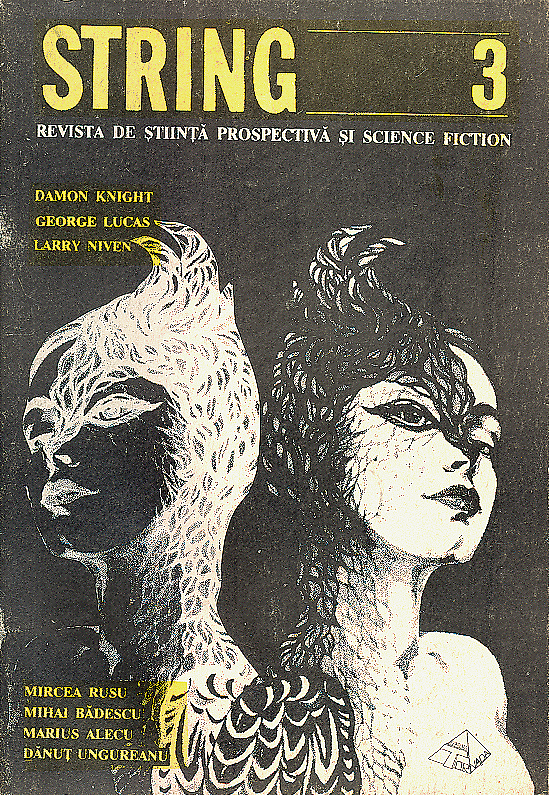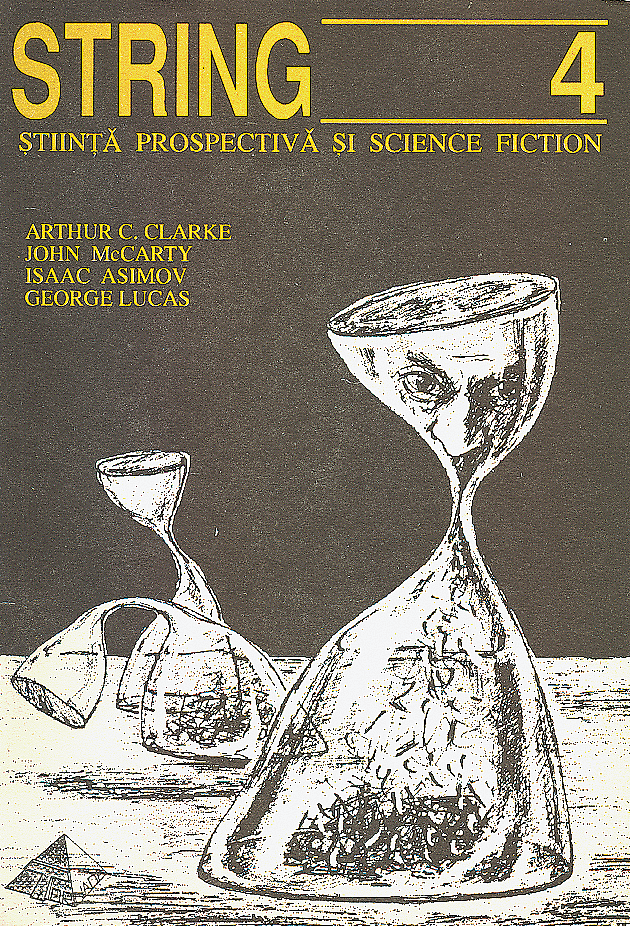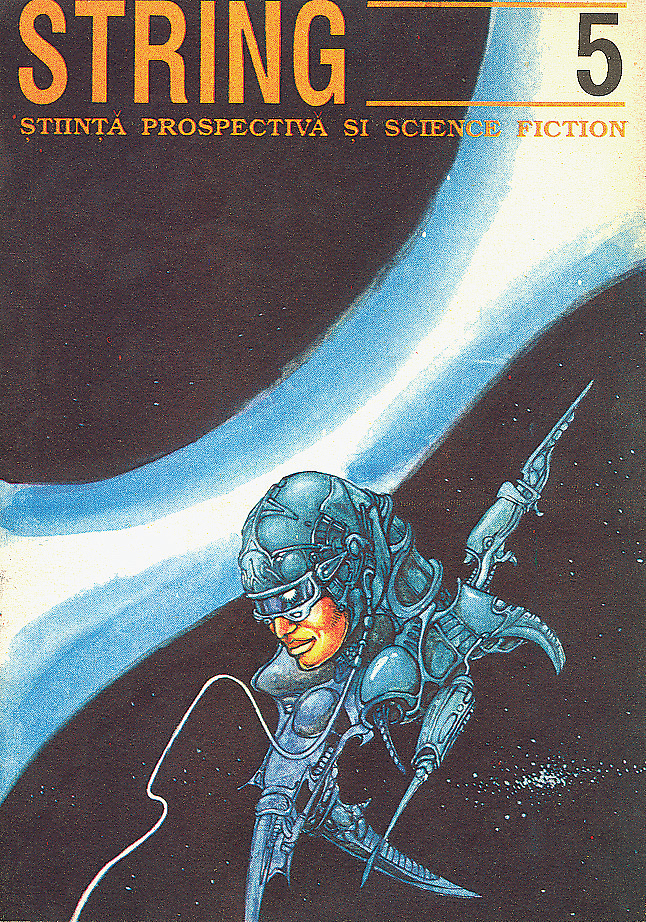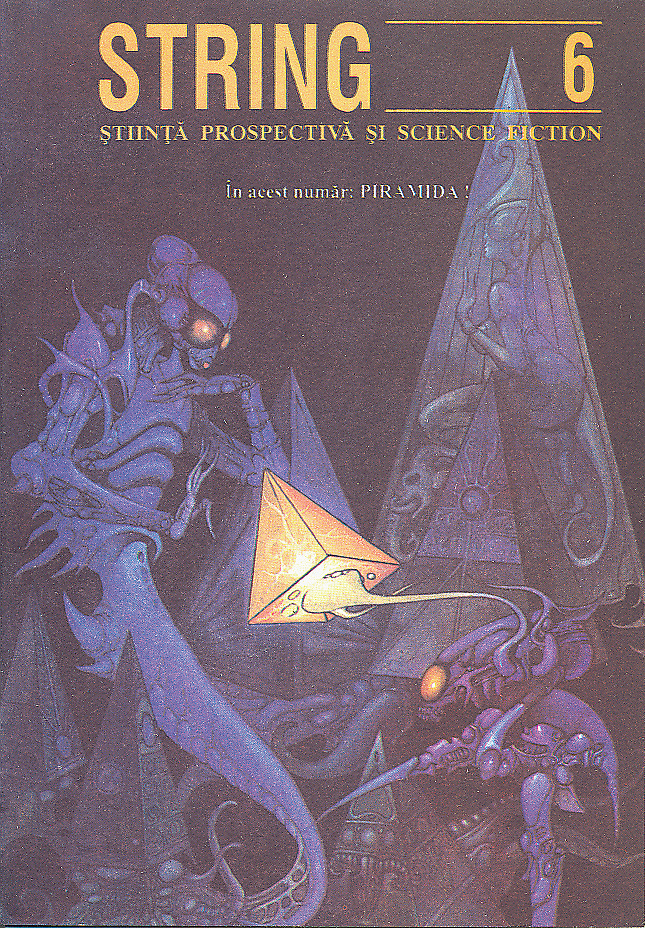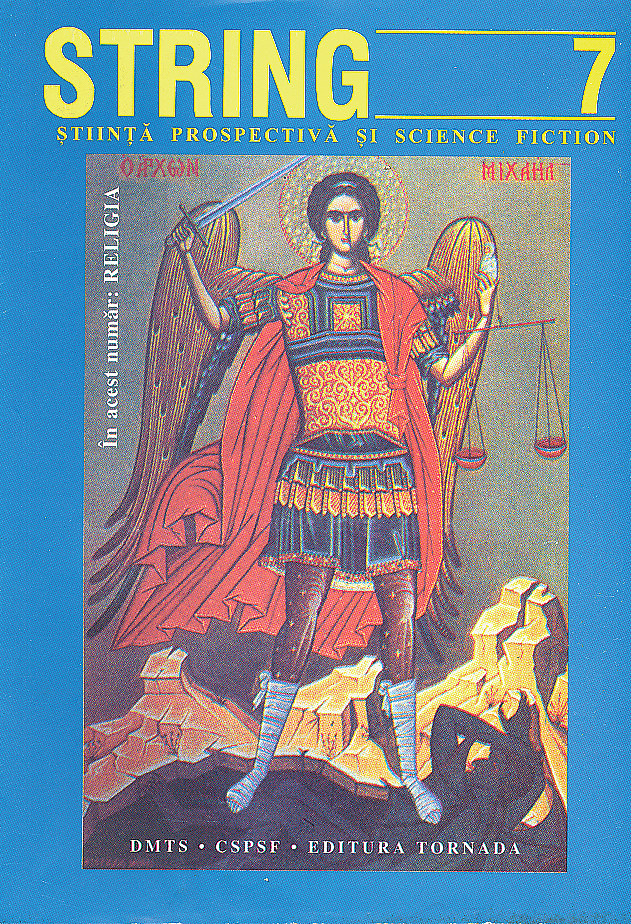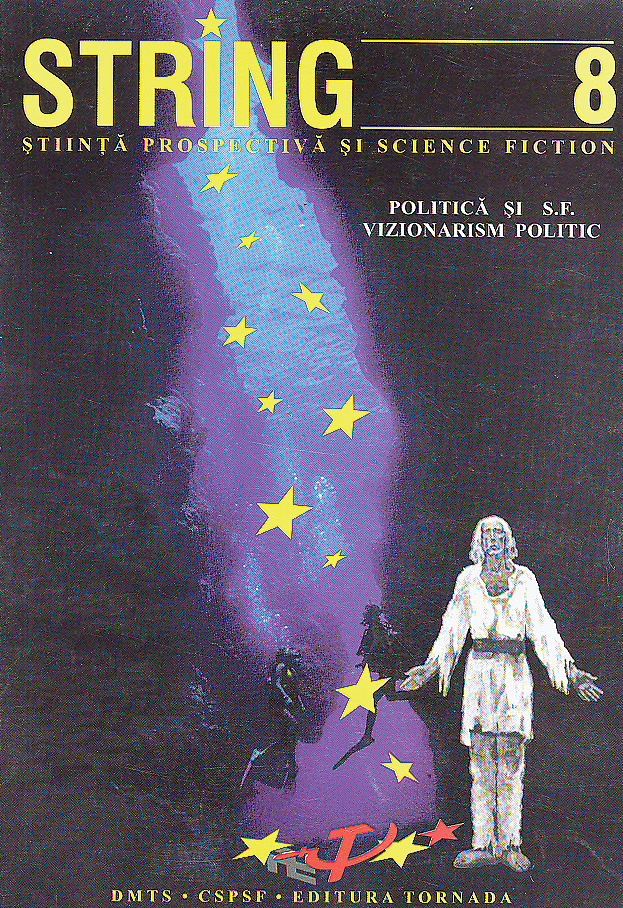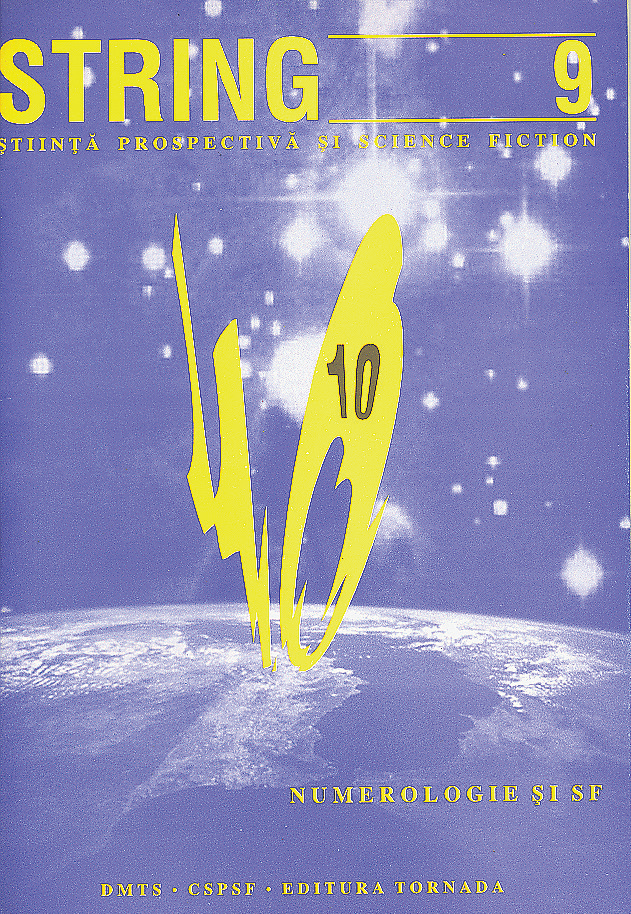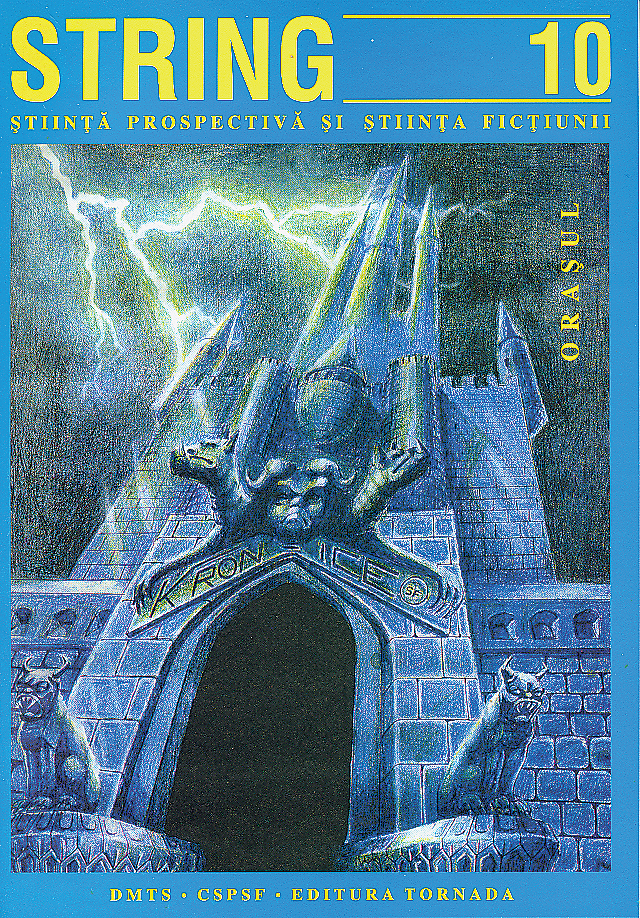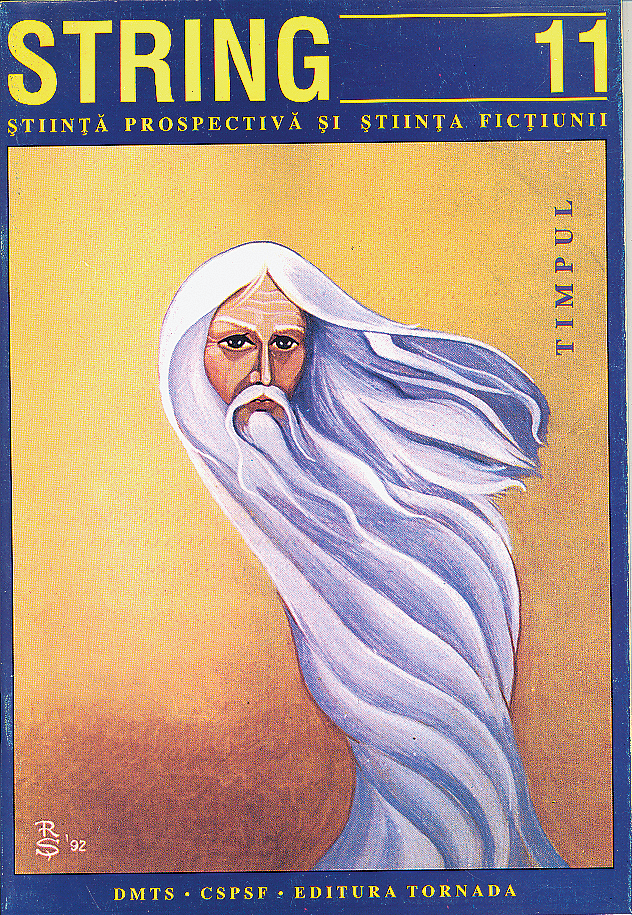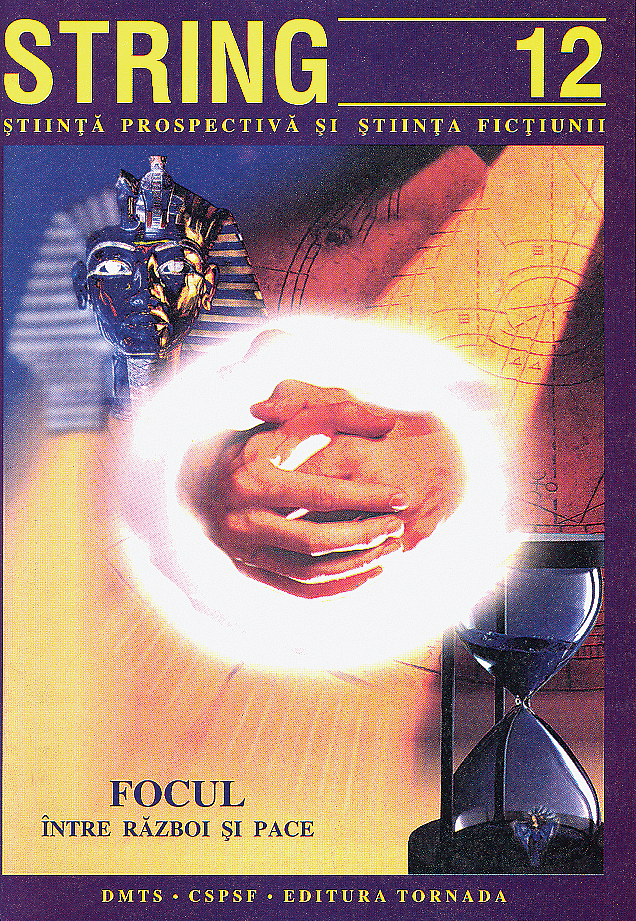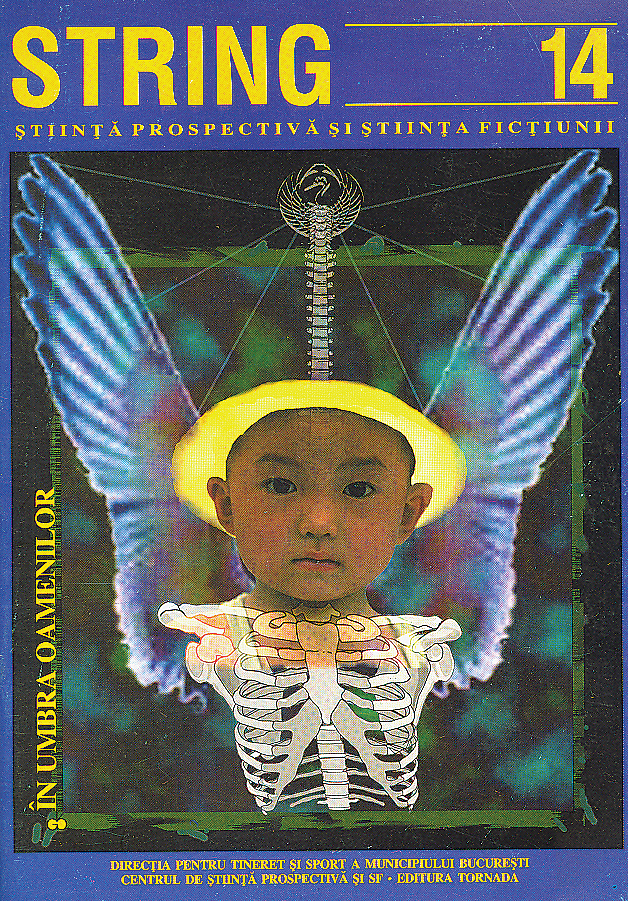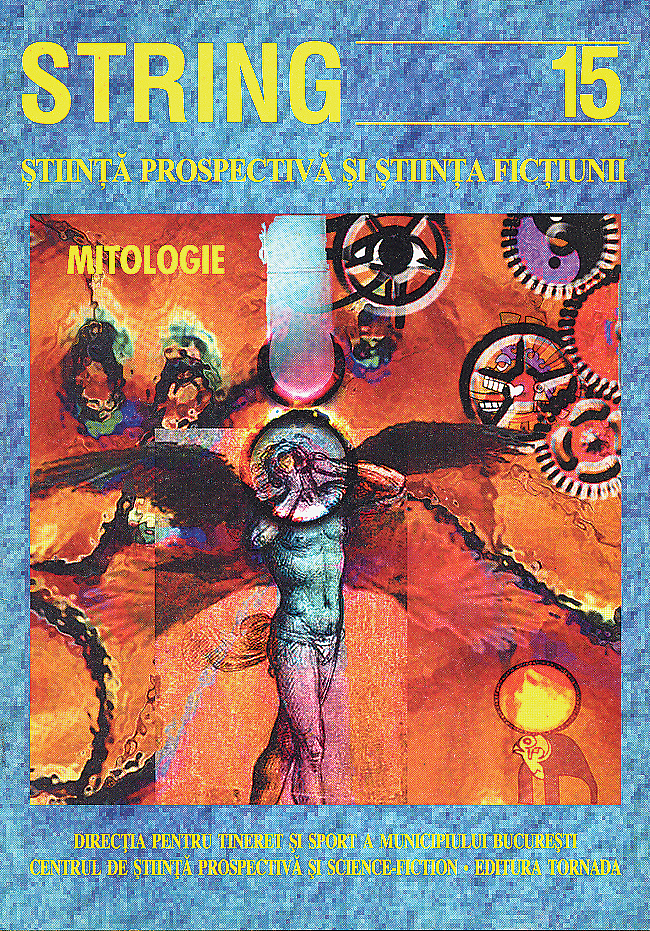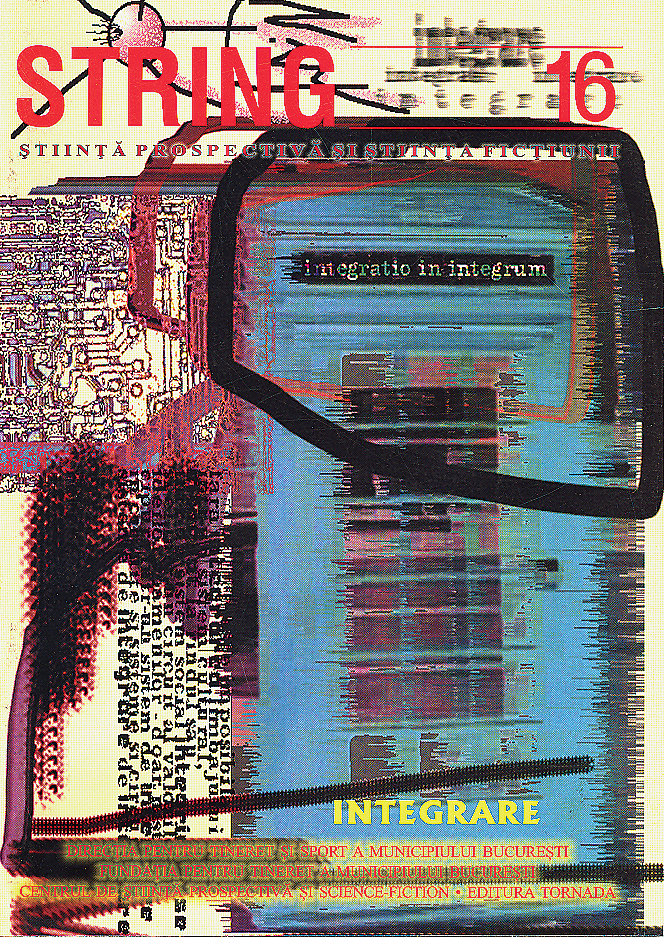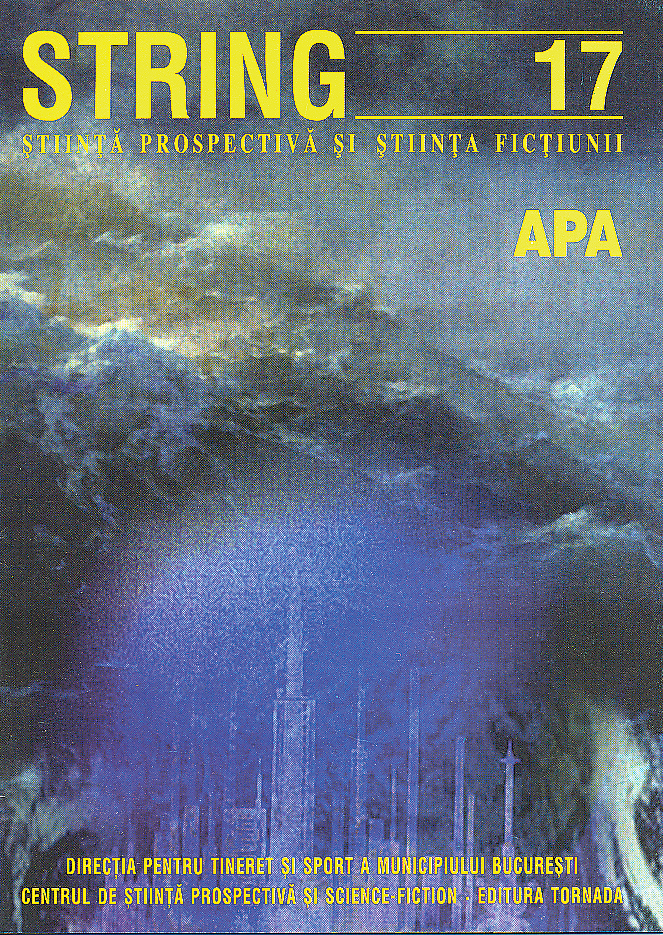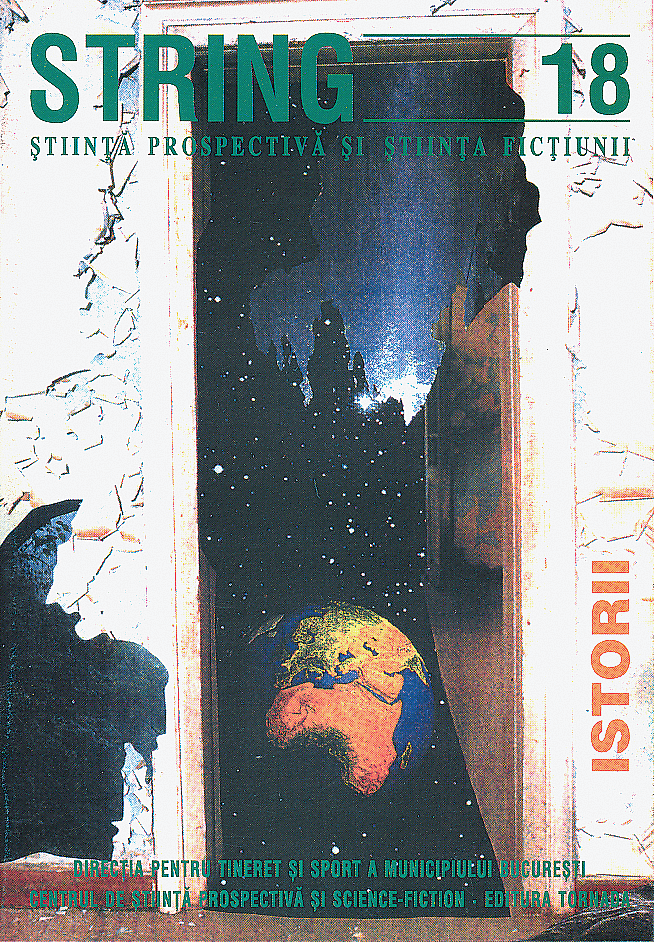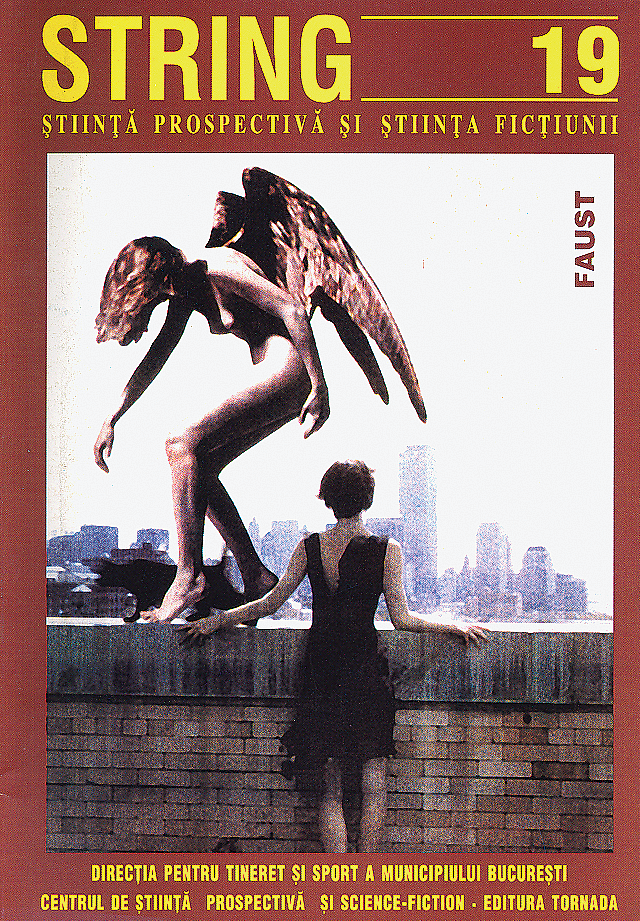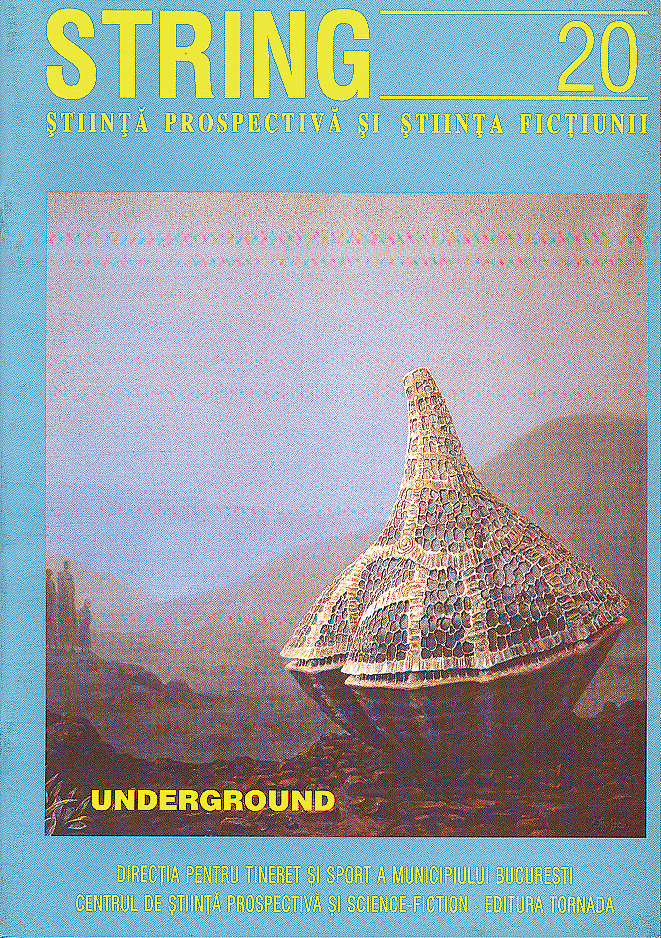String magazine 13
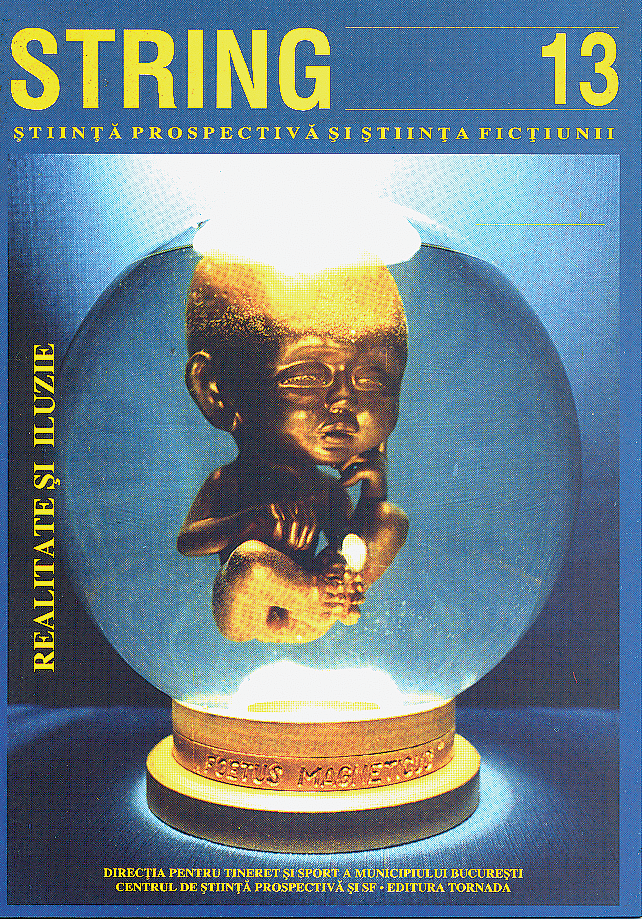
Between angels and ephemeris
The angel kissed my cheek
And I felt the warmth of love,
Pam, pam, pam, pam…
I was sitting by the lake, on a bench, in the shade. I was looking at the water and humming. I will never get over this. I have a crow's voice, but I love music and I really want to write folk music lyrics.
do i like it With all your heart?
I had avoided thinking about it, but there is a time for everything…
Strange, but if I remember correctly, this bizarre story also began with a song... and in the same place.
The idea came to me to compose a text about an ephemeris, who wants to live more than one day, to know that tomorrow that is not destined for her. Out of the whole song I had composed only the chorus, on a haunting melody:
I wish there was tomorrow
It's good that there is a dream...
I had talked with Mike - Mike Haulete -, because he, before he started writing prose, had composed texts for folk songs. He had been successful, so he spoke with knowledge. He had looked at me with some amusement and explained that I had tackled a pretty big problem for a song. That the respective texts must propose what can be transmitted through a song and can be received by a spectator at a concert.
I can't say he wasn't right, but his rightness didn't please me. And I hummed my thanks, and that chorus continued to haunt me. So when this whole weird story started, I was sitting by the lake trying to figure out what the hell an ephemeris could be thinking so I could compose the stanzas of my text. Because, despite Mike's observations, that chorus kept bouncing around in my head, never leaving me alone for a moment.
And as I wracked my mind with failed poetic attempts, I felt a presence.
It sometimes happened to me that I felt the closeness of someone not physically, but as an avalanche of thoughts, ideas and future projects. Very clear projects, as if I read them from a piece of paper.
I turned and saw a tall man, with a figure that reflected an inner turmoil of particular intensity. He seemed to be looking for someone. He looked around, then sighed in disappointment and turned away. He went to the summer garden by the wharf.
Giving in to a sudden impulse, I went after him.
As a matter of fact, the only free seat was at the table that the individual had occupied. I asked her permission to sit down. He nodded absently. He was staring at the pint, as if he was waiting for who knows what to emerge from its depths, something that terrified him, but which, at the same time, he wanted.
After sipping heavily on the cold liquor—nothing beats a really cold, teeth-chattering beer in the heat—I relaxed and felt his plans again.
Or, rather, what his plans should have become. I was practicing, if you will, a kind of clairvoyance, in which I did not perceive facts or events, but ideas. I knew what ideas, what intentions the individual would have years from now.
I discovered, to my pleasant surprise, that my table neighbor was a writer. Or, better said, he will be a writer. Really big. in his future mind was an extraordinary novel, which had all the literary qualities of a valuable work, but combined with ease of approach and an attractive subject. It therefore had every chance of a huge success, both critically and with the public. I couldn't help but exclaim:
– What an extraordinary novel you intend to write!
He startled, suddenly turned his attention to me and looked at me with hopeful eyes.
– What novel are you referring to?
– Leaf silence, I replied, in a tone as if he should know what I meant.
The hope in his eyes slowly died out, like the embers of a campfire that no one throws wood over.
– The one about a slightly psychopathic individual, Alfred Phffull, who discovers that he is the last representative of an endangered race...
For the next ten minutes I told him the novel, with as many details as I could discover in his mind. I was not surprised by the reaction of my interlocutor. It was about something my conversation partner was going to do in the future, the idea, even if it existed somewhere, had not entered his conscious mind. The individual listened to me avidly, careful not to miss any detail, after a minute he started writing on a piece of paper...
Yes, it was an extraordinary book, which will bring the author - Benone Tănăsescu, I had read his name on the cover that I had seen in the same place from which I had also collected the description of the novel -, a well-deserved celebrity.
- That's all, Mr. Tănăsescu, I concluded. That much I managed to perceive in your mind.
He startled violently the moment I called his name, he wanted to say something, then he stopped, he looked at me somewhat scared, but it was clear that the desire to know was much stronger than the fear.
- Yes, my name is Tănăsescu, he said, after all. who are you what is your name
- Excuse me, I forgot to introduce myself: Adrian Banu. I'm a bit of a writer myself, I've published through rather obscure magazines: The diary of extraordinary events, the Review of anticipation and the unexpected, Strangeness...
I signaled to the waiter to bring another line, I took a heavy shower and, allowing myself the feeling of reconciliation, of fulfillment, that had engulfed me, I continued to walk, full of good cheer.
- What a strange fate I had, Mr. Tănăsescu! Everything went well for you, you did school without effort, you had parents who ensured you a proper education - foreign languages, music, painting, etc. But me... I was born in Cioflu Mic, a commune in Argeș county. My parents, poor peasants with no fortune and no prospects, could not do much for me. So I attended the cabinet-making high school in Târgoviște, which trained craftsmen for the workshops of the factory in Breaza – the largest in South-Eastern Europe in terms of furniture carved in expensive essences. My parents enrolled me in that high school, Mr. Tănăsescu, because they ensured my schooling and boarding for free. Otherwise, they couldn't afford to send me to school. I worked in the factory for ten years, as the contract stipulated, after which I came to Bucharest to try my luck in literature. I had been part of the factory's boardroom, had published in various magazines, and when an acquaintance offered me a position as an editor at Strangeness, I accepted immediately, even though the salary was half of the factory. But I'm in the middle of the literati, and that's what matters...
I was silent for a while, noticing only then the stunned figure of Tănăsescu, who was looking at me as if he didn't know what to believe. I sipped the beer that had started to warm up, it tasted bitter, like my joys always obtained with too much effort... and the plans of the one in front of me hit me again. More out of the desire to shock him, to show him what he's capable of, I started telling him other novels or stories that he was going to write. And he was writing with desperate haste, eager to record my every word. I wanted to tell him: stop you fool, they are your ideas, even if you don't know them now, they will still spring from your mind, their future is certain, there is no doubt.
At last I was silent. My jaws hurt, I was hoarse, tired, bored. I motioned for the waiter to bring the bill.
– What are you doing? Tănăsescu asked me in alarm.
- I'm going home. It was a nice conversation, although I was the only one talking and I probably bored you by talking more about things you know, but tomorrow I have a hard day and I have to walk from morning to night. I need to rest.
- Don't you have anything else to tell me? he exclaimed, with such deep despair that it impressed me.
- Well, I have a lot more, but that's enough for today. I can't anymore.
- When do we meet again?
After comparing our schedules, we decided, by mutual agreement, to meet again in two days, also in the wharf garden, at the same time.
On the way home I thought about that Benone. An interesting individual, who, in a way, I had liked. He was the first great talent I had known. Those I had dealt with until then were either authors of value, but who addressed a small segment of the literary world - so, implicitly, they had accepted the idea of a quasi-anonymous - or writers of the dozen, with momentary and temporary successes, who were to be forgotten as quickly as possible.
I went about my business, but at the appointed time I showed up at the appointed place. Benone Tănăsescu was waiting for me. He had reserved a secluded table where we could chat freely, and he had come armed with a hefty notepad and a handful of cheap pens. He didn't ask me what I wanted to order. He hadn't offered to pay for my beer last time either, which made me think he was stingy in his ways and eager for a bargain.
After sipping the cold beer, I began to tell him some of the things I had done since we had not seen each other. My interlocutor listened to me not very attentively, as if he was weighing the point of remembering the trifles that I was serving him, as if he was still wondering if those trifles had a purpose that escaped him for the moment.
After stewing him in his own juice for a while, we got to the subject that interested him: the content of his future works. He suddenly became alert, writing down everything I told him with great speed. I narrated for about two hours, attracted by the beauty of those writings that were going to see the light of day in print. But after a while I got bored. Why did you have to tour endlessly? I would have liked the individual on the other side of the table to tell me something too, to become friends, to discuss neutral things, without interest, just for the pleasure of the conversation.
So I stopped.
- Ready? he asked, disappointed.
– There are a lot more, but I'm fed up. I don't feel like it anymore.
– Please… he tried to insist.
- For nothing. I'm tired and I don't feel like it anymore. I feel exploited. Why should I tell you all this? You will discover them yourself when the time comes. And if you're really interested, be nicer too, treat yourself to a beer, be friendly. That I have no obligation to you.
- Don't you have any obligation? he snapped. Say no more! I knew your master was mean and malicious, but a deal is a deal! So fulfill your obligations and stop making noses!
– What obligations? I got angry, in turn. And what master? I have no master! I am free, like the birds of the sky.
- Look, I'll remind you, so you don't make a fool of yourself! I made a pact with your master. Which I signed in blood. I was giving him what he wanted, and he was making me the greatest writer in the world. Within three days they were to send me the contents of the works with which I was to win my glory. The method of transmission was to be found by him. And he invented you. I have to admit that it is a very bearable and affordable way. So don't give up and do your job properly!
I was so surprised that I only managed to say:
– I don't know what you're talking about! It's about a talent of mine, which has also manifested itself in other circumstances... You can ask...
He interrupted me, nervous:
- Leave me alone with this nonsense! You are just a messenger. You don't exist! Convey the message you wear, no frills!
- What do you mean I don't exist? I'm here, drinking beer, talking to you, published some stories, worked in a factory...
– You don't exist, man, don't you understand? Consult any atlas of Romania, you won't find any commune called Cioflu Mic, not only in Argeș county, but also in the rest of the country! So there is no birthplace of yours. Even the cabinetmaking high school in Târgoviște is no longer real. Not to mention the large furniture factory carved in expensive essences from Breaza. Everything is just illusion. The one who sent you wanted to give a semblance of reality and he totally succeeded. If I hadn't started making phone calls around the country yesterday, I might have accepted your story. In fact, to tell you the truth, he added, somewhat gently, I didn't suspect anything at first. I just wanted to see who I was dealing with, to read one of your stories myself. I tried to buy a copy of the magazine you said you were working on. No one has heard of Strangeness, not even the most die-hard fans. The same goes for the other magazines you mentioned. There isn't, my dear! You are, quite simply, a literary creation, so to speak! Your creator is a great artist, I admit, it gives an impression of realism like I have never mentioned before! But that doesn't change the data of the problem. You are a figment, an illusion for a purpose. Accomplish your mission and then leave me alone!
My first intention was to leave, to leave him alone. I've never liked crazy people, and the individual is clearly delusional. On the other hand, the onslaught of his projects was overwhelming me, I had to free myself from it. Without making any comment, I began to tell him, as quickly as possible, everything he was going to create from now on. And he was writing, he was asking me to speak less often, to tell him how to spell certain names... I didn't bother to answer him. I was in a hurry to empty my mind of that pressure, of the burden of thoughts and ideas that did not find their way into my mind.
I don't know how long it lasted, it was evening, my mouth was dry, I had forgotten the beer, I had forgotten everything, I just wanted to throw up that load of thoughts and escape.
Finally, the pressure eased, only one project remained, a particularly wonderful one, a complete masterpiece. I don't know for what reason, maybe out of envy, maybe out of spite for the bullshit he told me, I didn't mention anything about that novel that would have been the crowning glory of his work.
Only a vague haunting will remain, an unformulated regret, a suspicion that he could have created something... but so vague, that it will only manifest itself as an unmotivated regret, as a feeling of dissatisfaction and unfulfillment that will spoil the pleasure of success...
Then I got up and left through the darkness, not knowing where to go.
Because if he had been right, my role was over, and whoever had imagined me could abandon me at any time.
I stayed on a bench, in the shade, by the lakeside, watching the small ripples under the moon.
An ephemeris that wishes there was a tomorrow.
At least finish my song with the angel...
And maybe the angel will kiss me and give me oblivion and peace...
Actually, why am I scared? What awaits me is death, like any man.
I have memories, I will die. So I lived. I am - I was - real.
Or, maybe, Benone Tănăsescu is just an illusion, and the reality is me, the one born in Cioflu Mic.
Or maybe we are both an illusion in a reality I don't know...
Reality of illusion or illusion of reality?
How do we distinguish reality from illusion? I can't remember which writer imagined a person who had continuous dreams - starting from the moment the previous dream ended - and who was moved, during sleep, to an environment completely different from the one in which he had gone to sleep. For such a person, reality was the world of dreams, and true reality was a dream. So we could characterize reality as continuity and persistence, and illusion as something fleeting, which disappears quickly, without leaving a trace.
That is, reality is something that remains in the memory, because it is something related to practical life, while illusion is nothing more than an accident, which you can remember as an oddity, or forget, without any consequences.
But the perception of reality is done through the senses. So a relative thing, knowing that the senses are relative. We know that a plantain is red or green, because that's what we've been taught, but no one guarantees that the color that I perceive as red is not identical to the one that someone else perceives as blue. And colorblind people don't distinguish between red and green, so they can't tell if a plantain is ripe or not.
Two important things follow from this. The first: knowing reality is done through training, through one's own experience, and through accepting the experience of others. The concept of reality is traditionalist, transmissible and social. In essence, reality represents a convention that helps us manage in our daily life, the criterion for judging the correctness of the perception of reality being pragmatism. It does not matter whether reality exists or, if it does, whether it corresponds to an objective reality independent of our perception. The important thing is that that picture of reality has practical use. The earth could be flat for thousands of years without disturbing anyone. It was not until the time of long-distance sailing that practice proved that it was, in fact, round. That the reality of a round earth was more advantageous. So reality can change according to practical interest.
The second aspect of reality is directly related to the perception of reality through the senses. If the senses will perceive something other than normal, due to technical interventions, why should that reality not be equally valid? This is where the term came from virtual reality, which describes a reality that is not exactly what we consider objective, but which has sufficient grounds to be considered reality (being perceived also through the senses).
But the senses are imperfect, they can be easily deceived. The hand is faster than the eyes, say the illusionists. A conjurer can give us an artificial reality with features strong enough to rival the objective one.
So how do we resist the temptation to confuse the two realities? Simple: because we know that certain things cannot exist. The scam is just a show, not a reality, because our whole upbringing has drilled into our heads that a man cannot be cut to pieces without dying. We know this. As our great-grandfathers knew that an apparatus heavier than air cannot fly or that there is no animal like the giraffe.
It is therefore obvious that the notion of reality is constantly changing. A few hundred years ago, a radio or gramophone would have been considered scammers. Now they are real. Teleportation, levitation, telepathy are, for now, the dreams of science fiction authors or the tricks of illusionists. Tomorrow they might be real. Knowledge is constantly changing, and with it, our notion of reality.
We can therefore conclude, without a trace of doubt, that the reality we accept is a convention, an illusion, an imagination of the moment, which mirrors our ignorance, the actual ignorance of the true reality. We live in this illusion of reality only because we haven't discovered a better version of reality. Still.
But since we have accepted that reality is defined by tradition and learning, we also accept that reality is the sum of the information we accept as real. But let's not forget that the 20th century is the century of manipulation. The information is biased, it is intended to suggest things that are far from being real. Millions of people are convinced of the truth of some ideas, implicitly of their reality and their practical application. Communism, Nazism, capitalism - these are societies that have convinced their members of the reality asserted by their leaders. Only major crises have cast doubt on those realities in which the broad masses believed. But in addition to media manipulation - political or purely commercial - there is cultural manipulation. Certain attitudes are suggested to man. Feelings and sensations are suggested to him. And the greatest illusion that results from this manipulation is love. We do not love a particular being, but we have the illusion that it approaches the ideal generated by our own perception of the cultural model. As a result, we suggest to ourselves feelings appropriate to that cultural model, which everyone understands according to intelligence and environment. Such an illusion is considered by all to be the most objective reality. Here, then, is that illusion can become reality, that a reality can obviously rely on illusion.
So, we come to the conclusion that man is in the bizarre position of facing two types of reality. The first is a reality which he knows relatively, by means of imperfect senses and approximate knowledge. It is a illusion of reality, because in the mind there is a deep conviction that it is confused with objective reality. The second reality has a more difficult form to define. It corresponds, as far as the external world is concerned, to objective reality. But this reality is transfigured by the human psyche to the point of complete distortion. If we try to explain to a Romanian that his country is not more beautiful than others and, with certainty, poorer than many others, he will look at you in amazement. He has been told so many times, in school, then through the media and political speeches, that he has a beautiful and rich country, endowed with everything, that he will not be able to perceive the truth. The reality we live in is one where illusions become stronger than objective reality. Illusions take on the value of reality. It is a reality of illusion.
Which of the two realities is more THE REAL?
The illusion of reality is, however, an objective phenomenon. It is based on the weakness of our senses and knowledge. It is perfectable. It may, in time, lead to a reality closer to the objective one.
The reality of illusion represents the perversion of human senses and feelings. It represents an intentional, programmatic distortion of the perception of reality. It depends on man's capacity for self-deception. To take illusion as reality is to refuse to perceive reality.
Both forms are important for humans. We let ourselves be deceived by an illusion of reality out of convenience and the arrogance of knowing it all. Only doubt can save us from this trap. We give the illusion the character of reality from the desire to dream, from the impulse towards the ideal. Then we stop paying attention to details, we confuse dreams with reality, we believe lies because WANT let's believe them, hoping that the ideal has penetrated life. And from this trap we can also escape through doubt.
We can therefore conclude that the most suitable saying for man is: I doubt, therefore I think.


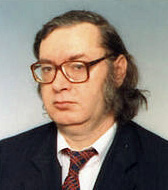
 Română
Română Deutsch
Deutsch English
English Español
Español Esperanto
Esperanto Français
Français Italiano
Italiano Latīna
Latīna Português
Português 中文(简体)
中文(简体) 日本語
日本語 한국어
한국어